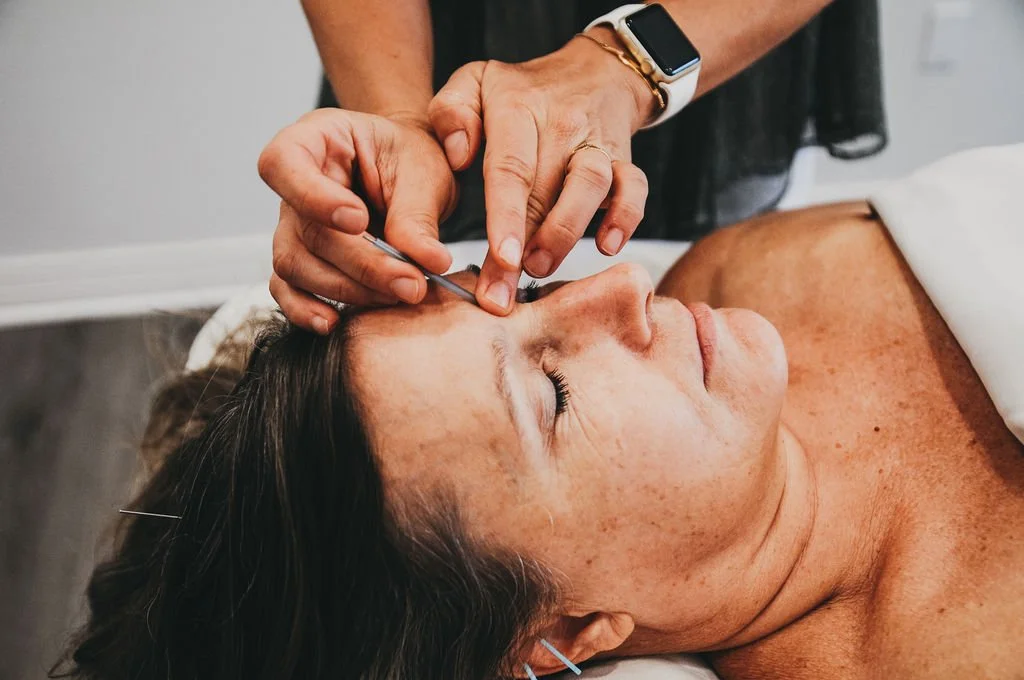Exploring Acupuncture as a Holistic Approach for Tourette Syndrome Management
Tourette Syndrome (TS) is a neurological disorder characterized by repetitive, involuntary movements and vocalizations known as tics. While conventional treatments such as medication and behavioral therapy can help manage symptoms, many individuals seek complementary and alternative approaches to enhance their quality of life. Acupuncture, an ancient healing modality rooted in traditional Chinese medicine, offers a holistic approach to Tourette Syndrome management by addressing underlying imbalances within the body's energy systems. In this blog post, we delve into the principles of acupuncture, its potential benefits for individuals with Tourette Syndrome, and the emerging research supporting its use as a complementary therapy.
Understanding Acupuncture:
Acupuncture is a key component of traditional Chinese medicine (TCM) that involves the insertion of thin needles into specific points on the body known as acupoints. According to TCM theory, the body is traversed by meridians, or pathways, through which vital energy, or Qi, flows. By stimulating acupoints along these meridians, acupuncture aims to restore balance and harmony within the body, facilitating healing and promoting overall well-being. Acupuncture is believed to regulate the flow of Qi, alleviate pain, reduce inflammation, and support the body's natural healing processes.
Acupuncture for Tourette Syndrome:
While the precise etiology of Tourette Syndrome remains unclear, it is thought to involve abnormalities in neurotransmitter function, brain structure, and neural circuitry. Acupuncture offers a holistic approach to Tourette Syndrome management by addressing these underlying imbalances and supporting the body's self-regulatory mechanisms. Through the stimulation of specific acupoints, acupuncture may modulate neurotransmitter activity, regulate neural pathways, and promote relaxation, reducing the frequency and severity of tics associated with Tourette Syndrome.
Potential Benefits of Acupuncture for Tourette Syndrome:
Reduction of Tics: Acupuncture has been shown to reduce the frequency and severity of tics in individuals with Tourette Syndrome. By modulating neurotransmitter levels, regulating neural activity, and promoting relaxation, acupuncture may help alleviate tic symptoms and improve overall quality of life.
Stress Reduction: Stress and anxiety often exacerbate tic symptoms in individuals with Tourette Syndrome. Acupuncture has been shown to reduce stress levels, promote relaxation, and enhance emotional well-being, which may help mitigate the impact of stress on tic severity.
Regulation of Neurotransmitters: Acupuncture may modulate neurotransmitter activity, including dopamine and serotonin, which play a key role in the pathophysiology of Tourette Syndrome. By balancing neurotransmitter levels, acupuncture may help regulate neural function and reduce tic symptoms.
Improvement of Sleep Quality: Many individuals with Tourette Syndrome experience sleep disturbances, which can exacerbate tic symptoms and impair overall well-being. Acupuncture has been shown to improve sleep quality, increase sleep duration, and promote relaxation, which may contribute to symptom relief and enhanced quality of life.
Enhancement of Overall Well-Being: Acupuncture is a holistic therapy that addresses the underlying imbalances contributing to Tourette Syndrome while promoting overall physical, emotional, and spiritual well-being. By supporting the body's self-regulatory mechanisms and promoting harmony within the body-mind-spirit complex, acupuncture empowers individuals to achieve holistic wellness and thrive despite their condition.
Research Supporting Acupuncture for Tourette Syndrome:
While research on acupuncture for Tourette Syndrome is still limited, preliminary studies and clinical observations suggest promising results. A systematic review published in the Journal of Alternative and Complementary Medicine found that acupuncture was associated with significant improvements in tic severity and overall symptomatology in individuals with Tourette Syndrome. Additionally, a randomized controlled trial published in the journal BMC Complementary Medicine and Therapies reported that acupuncture was effective in reducing tic frequency and severity compared to a sham acupuncture control group.
Acupuncture offers a holistic approach to Tourette Syndrome management that addresses underlying imbalances within the body's energy systems, supports self-regulatory mechanisms, and promotes overall well-being. While further research is needed to elucidate the mechanisms of action and efficacy of acupuncture for Tourette Syndrome, preliminary evidence suggests that it may offer meaningful benefits for individuals seeking complementary and alternative approaches to symptom management. By empowering individuals to take an active role in their health and well-being, acupuncture holds promise as a valuable adjunct therapy for enhancing quality of life and promoting holistic wellness in individuals with Tourette Syndrome.


